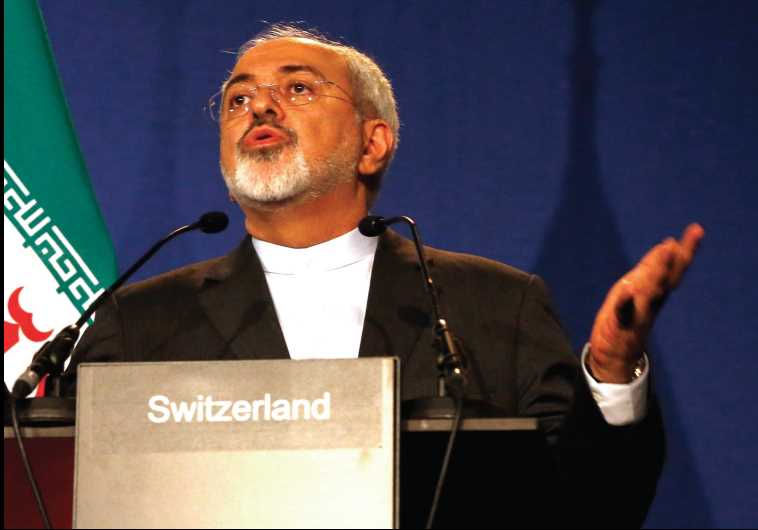Iran's Zarif: It's time for US to choose between cooperation and confrontation
In 'NY Times' op-ed, Iranian FM says US and its allies can't fight al-Qaida and ISIS while enabling their growth in Yemen and Syria.
 Iran’s Foreign Minister Mohammad Javad Zarif presents Tehran’s case in Lausanne, on April 2.(photo credit: JONATHAN ERNST / REUTERS)
Iran’s Foreign Minister Mohammad Javad Zarif presents Tehran’s case in Lausanne, on April 2.(photo credit: JONATHAN ERNST / REUTERS)